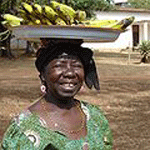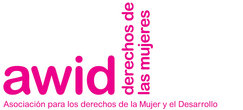Cameroon
|
Les cibles nationales des OMD au Cameroun sont loin d’être atteintes d’ici à 2015. Nous recommandons des efforts soient dans le sens de: la transparence dans la gestion des ressources publiques; l’amélioration de la qualité du système éducatif; la fourniture en quantité de l’énergie qui va renforcer le programme élargi de vaccination et la réduction des maladies de l’enfant, et l’introduction des programmes de développement durable, notamment par une bonne législationfoncière et l’introduction des normes de gestionenvironnementaledans la stratégie de la croissance.
|
Published on Thu, 2013-02-07 19:28
The national MDG targets in Cameroon are far from becoming a reality by 2015. It is recommended to concentrate efforts on transparency in the management of public resources, on improving the quality of the education system, strengthening the Expanded Programme of Immunization and reducing childhood diseases, and the implementation of sustainable development programs, in particular through legislation on land and environmental management standards in the growth strategy. |
|
Published on Fri, 2012-03-16 10:11
In terms of gender equity Cameroon lags well behind the Sub-Saharan African average, but some of its neighbours and nearby countries are even in a worse condition. |
|
In a country where more than half the population is unemployed and 51% of the people are living on less than two dollars a day it is more important than ever for natural resources to be managed in an intelligent and sustainable way. But the Government’s development model is not sustainable. Desertification and the loss of biodiversity are serious problems and if not tackled immediately the population’s well-being will be even more at risk. The Lom and Pangar dam project will displace thousands of people and ruin one of the richest ecosystems in the territory.
|
|
Although Cameroon will not achieve the MDGs by 2015, it may become an emerging country before the 2035 deadline set in its 2007 Strategic Document for Growth and Employment. For this to happen, the State must completely overhaul its economic and financial governance, among other things, and put an equal value on the skills of its women, men, young people and adults. In order for the management of international aid to become more efficient, civil society organizations have issued a call for gender to be taken into account and for better coordination with donors.
|
|
Source: . Published on Thu, 2010-07-29 00:00
» |
|
Published on Sat, 2010-07-10 15:16
The Federation of Cameroon Civil Society Organizations (FOSCAM, for its initials in French), Social Watch’s Focal Point in Cameroon, participated in the elaboration of a bill that seeks to mainstream a gender perspective into national policies on growth and employment in the country. |
SUSCRIBE TO OUR NEWSLETTER




